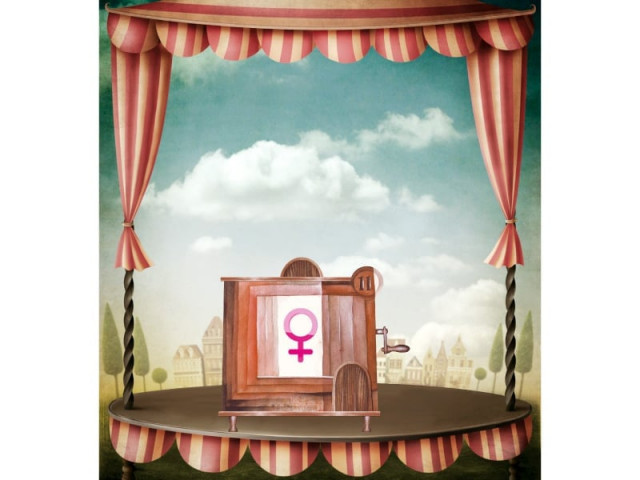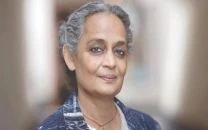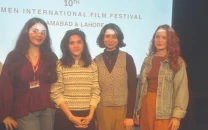Folk theatre: Behind the curtains
Unfortunate tales of female folk artists in Pakistan.

For folk artist Saima Akhtar, it is unfair that she does not get the same respect as other performing artists in Pakistan. Akhtar, granddaughter of famous folk theatre performer Bali Jatti who enjoyed fame and popularity in the 1970s, now sings for PTV and is often seen at Lahore’s Alhamra Arts Council as well.
Akhtar and Jatti shared a similar fate; both fought for acceptance in a society where folk theatre has always been a genre that is heavily stigmatised against. “It falls in the low level category. At the end of the day, we are considered a joke and are laughed at. More often than not, a comment or two are hurled at us when we leave the exit door of the auditorium,” says Akhtar.
What is folk theatre?
“Folk theatre is people’s theatre,” explains street theatre practitioner and activist Sheema Kermani of Tehrik-i-Niswan (Women’s Movement). She further adds, “A folk artist is one who comes from a rural background and he initially used to perform for rural people only. The themes are usually based on agriculture, land and peasants and most of the stories are linked to the region where the folk artists were based — either in Punjab, Rajasthan or Cholistan. There is always a moral message at the end of the play.”
In the subcontinental context, this tradition has been carried on by families for centuries and is more prevalent in the Merasi culture. “Since the entire family is involved in the art, women are also part of it, hence we hear tragic tales of women folk theatre performers.”
An ode to the ‘daring’ women
Behind the curtain and far from the limelight was the story of theatre performer Bali Jatti, whose tale of horror and survival in the domestic domain has now been unearthed by Fouzia Saeed, author of the famous book Taboo: The Hidden Culture of a Red Light District. The social scientist has delved in great detail about the struggles of Jatti in her recently published book Forgotten Faces: Daring Women of Pakistan’s Folk Theatre.
“I admire her for her courage, what she faced — from constant abuse to nagging for money from her husband. On the other hand, she was always busy trying hard to keep folk theatre alive. For that, she should have been taken into account for a Pride of Performance award,” states Saeed.
The author further explains why (according to her) Jatti faced so much torture at the hands of her husband, Munir Ahmed. “It’s difficult for many men to digest their wives’ fame. Hence, such husbands tend to get abusive, to ensure that they have control over their wives assets and money.”
‘We deserve recognition’
Meanwhile, Saima Akhtar, who is still fighting to keep the tradition alive believes, “Folk legends need to be honoured.” The singer also insists that the government should support and encourage folk artists: “In Pakistan, people forget that performing arts is just not entertainment but a profession as well. Sadly, artists in the country are dying of hunger and there is nobody to lend a hand.”
Published in The Express Tribune, November 23rd, 2011.



















COMMENTS
Comments are moderated and generally will be posted if they are on-topic and not abusive.
For more information, please see our Comments FAQ